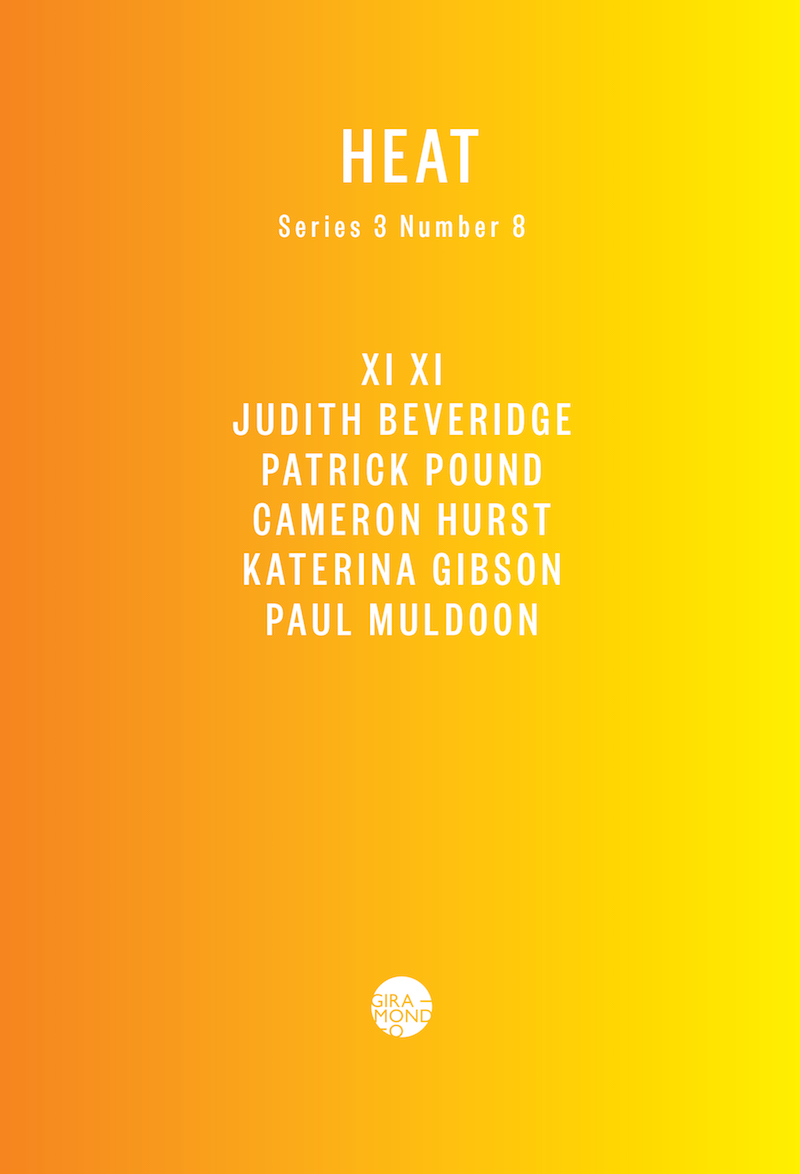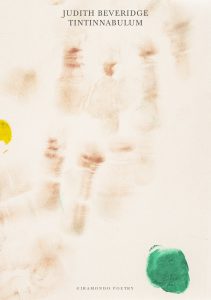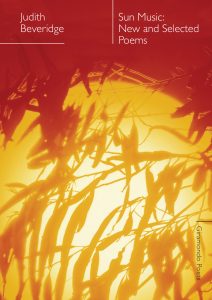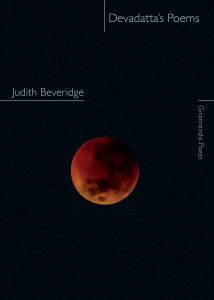Published April 2023
Become a subscriber
Animal Poems
Bluebottles
So many swimmers ran out of the sea, branded with welts, or wearing scarlet copies of the tentacles of a swarm of bluebottles. They limped, yelled, rubbed sand, or poured water on the stingers, and some, unsure of the correct first aid, applied ice cream, even sunscreen, anything at hand: soft drink, hot coffee— and some already sunburned, felt the stingers like a further blowtorch, a raw franking, a due payment of blisters. On the sand the bluebottles looked like air-filled dumplings, tight balloons of nothing, soap bubbles on top of small bags of laundry bluing. Kids with sticks burst the bulbous floats, or slapped them with their thongs making the sound of corks fired from popguns. Some lifted the tentacles high then flung them away to make strange patterns on the sand. I’ve never held to divine supplication or sympathetic magic, never worn charms or lucky pieces, but that day I whispered a prayer that no tentacles clothe me in pitiless scarlet, that no barbs pierce my body with the lightning-quick, punching power of tattoo needles, that I don’t run out of the sea with my skin turning into flocked wallpaper, my arms bearing a mock-up of my veins, my legs a sea creature’s long hieroglyphics for pain.
The Cuttlefish
When the fisherman sloshed the cuttlefish from a bucket
onto the cleaning table, an alarm of pigments
flushed across its skin,
then it discharged a cloud of greasy sepia ink
just before the man stuck a knife into it and its gills
leaked green blood.
He scooped out the glaucous eyes like galls
of plant tissue then held them
impaled on the tip of his blade.
The ink-smeared body he cut into rings and laid on a bed of ice.
The faint pink bone he tore away floated like a tiny surfboard
before it washed onto grey sand.
Pelicans ate the skin and entrails, gulls fought
over the eyeballs. Watching,
I reeled, nauseated, as if the day had suddenly passed
through a light-splitting lens
changing everything into colour-coded horror.
Not once did the man look up from the steel of the table,
nor from his knives.
I looked towards the lighthouse, a gleaming, white pillar
of unsplit light, orienting me back into ordinary daylight,
though I could still smell the blood’s verdigris tang,
still see the displaced eyes—
the pupils dark, wavy: two tildes, two static ripples—
pale fruit dripping from the end of a knife.The Leech
You’re a sycophant, repugnant. Vile bacchant—
you suck and glut, fill like a slimy phial. No denial
of the claret in our veins. Fat phlebotomist,
yes, you were used to treat ailments—fevers, gout,
haemorrhoids, headaches, clots, bleeding wounds
and gums—you thrived, made doctors rich.
Gatherers, poor women,
wading in bogs and swamps found you with their
feet and legs. You’d cling on, swell like lustful phalluses
before dropping off; the women whey-faced,
ghostly, bled for many hours. Then your celebrity
as a cure-all changed and you lost your free feeds.
Flea, tick, mosquito, louse
or bed bug are never in your league, you with your
three jaws, three hundred teeth, your blood-thinning
spit. O, adherent parasite, varicose hermaphrodite,
I’ve watched you cover my toes, black as gangrene.
No animal or orifice is off limits, you love a groin,
a bladder, the soft tissue inside an elephant’s trunk.
Animals In Our Suburb, 1960s
Each kitten weighed no more than a sock. My father held
them down in the bucket, the water brimmed, and out of each
mouth came a cry and a small slew of bubbles. Weeks earlier
my mother had flushed down the toilet seven baby white mice
from a pair that would not stop breeding. Childhood seemed
to be a series of pets turning into pests. At night I’d hear
the local toms fighting, a sound of wild hissing—as if bagpipes were asphyxiating. No one kept their cats inside. No one took their animals to the vet. We found our cat, Tibbles, behind a bush, dead with a suppurating eye socket. Every childhood had a killing field: chickens running around without their heads, drowned rabbits, drowned guinea pigs. A boy up the street put a lit bunger into his cat’s ear. Nearly every backyard had its chained-up mongrel. Our neighbour kept an ex-factory guard dog. It terrorised us with its bark, its hefty, grit-blasting growl and weaponised face. It cut its teeth on cyclone wire and trespassers. In our suburb no one had a lapdog. Who’d ever heard of a lhasa apso, a shih tzu, or a bichon frisé? Dogs were to ward off strangers, to eat the table scraps, self-appointed avengers roaming streets with mange-ridden skin, worms in their guts; bitches with hanging teats, or carrying the new litter of ill-fated mutts—future puppies birthed on a clump of newspapers or rags, licked into brute existence— then dumped in an alley, or behind someone’s garden shed.
Listening To Cicadas
Thousands of soda chargers detonating simultaneously at the one party * The aural equivalent of the smell of cheese fermented in the stomach of a slaughtered goat * The aural equivalent of downing eight glasses of caffeinated alcohol * Temperature: the cicada’s sound-editing software * At noon, treefuls of noise: jarring, blurred, magnified— sound being pixelated * The audio equivalent of flash photography and strobe lighting hitting disco balls and mirror walls * The audio equivalent of lightning hitting your face * The sound of cellophane being crumpled in the hands of sixteen thousand four-year-olds * The aural equivalent of platform shoes * The aural equivalent of skinny jeans * All the accumulated cases of tinnitus suffered by fans of Motörhead and Pearl Jam * Microphone feedback overlaid with the robotic fluctuations of acid trance music * The stultifying equivalent of listening to the full chemical name for the human protein titin which consists of 189,819 letters and takes three-and-a-half hours to pronounce * The aural equivalent of garish chain jewellery * A feeling as if your ear drums had expanded into the percussing surfaces of fifty-nine metallic wobbleboards * The aural equivalent of ant juice * Days of summer: a sonic treadwheel




